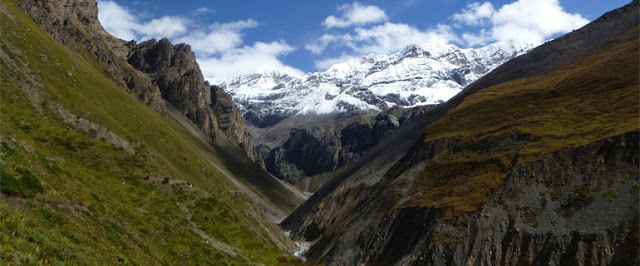Annapurna trekking is one of the most fascinating
lands of bio diversity in the world. It is the largest protected area of Nepal
Himalayas. The unique biodiversity, the scenic grandeur in combination with the
multi cultural and multi ethnic diversity make it the world’s most popular
trekking destinations. With the objectives of achieving a balance between the
environment conservation and social economic development, through people’s
participation, the Annapurna conservation area project (ACAP) was launched from
1986 under the aegis of the national trust for nature conservation. Between
these two mountains lies the valley of the Kali-Gandaki River, the deepest
gorge in the world. Views of lush, fertile farmland and stands of undisturbed
natural forest, snow covered mountains and encounters with a mixture of many
ethnic communities all add up to a diverse range of experiences that makes this
area one of the most satisfying trekking destinations in Nepal.
There are various trekking package on Annapurna
region: Annapurna base camp trek, Annapurna circuit trek and Annapurna panorama trek. Annapurna
Circuit Trekking is one of the major trekking routes in the Annapurna region,
the other being Annapurna Base Camp trekking.
The Basics:
- Trek
duration: as per allocation
- Voted as
the best long distance trek in the world
- Permits
required: TIMS (Trekkers’ Information Management System) Permit, Conservation
Area Project Fees
- High
peaks range: 6,000 m – over 8,000 m
- Arrange a
trek: Package tours or Independent trekking
- Best time
to trek: October – November
Equipments:
The clothes and gears depend on the time you go, but
here are the essentials: Good pair of hiking boots, Good quality socks, Long sleeve shirts, Trekking pants, Shorts Wind cheater jacket ,Hat/ Cap, Rubber
sandals, Water bottles (purification tablets),Map, Medical Kit, Rain jacket
(for monsoon)
Difficulty: It is a fairly challenging level trek.
Those of you, who’re physically fit, would find it comfortable.
- Requires
decent stamina
- Many
parts of the trail requires you to ascend and descend
- Snow and
ice on the trails (depending on the season).
